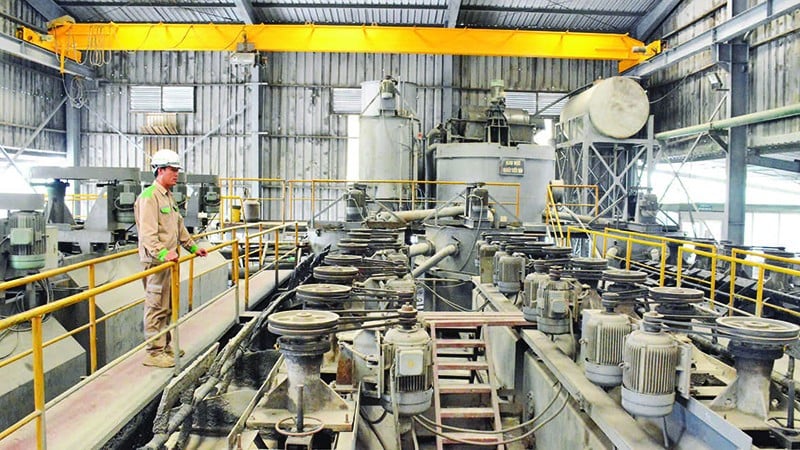
However, due to their tendency to cause pollution, construction material manufacturing and trading enterprises, including private enterprises, are in dire need of reasonable and specific support policies for sustainable development, especially after the Politburo issued Resolution No. 68/NQ-TW dated May 4, 2025 on private economic development.
Expected
Mr. Kieu Van Mat, Chairman of the Board of Directors of Song Da Cao Cuong Joint Stock Company, assessed that Resolution No. 68 of the Politburo has created great momentum, especially after the ups and downs of the unburnt materials sector.
The company has boldly invested, improved technology, built another factory in Binh Thuan province, contributing to solving the difficult problem of ash and slag treatment of Vinh Tan thermal power center. The factory in Hai Duong, up to now, has also treated about 70% of ash and slag of thermal power plants in the northern region with many new products, closed models, contributing to reducing environmental pollution.
In the cement market, supply currently exceeds demand, and competition between factories is fierce. General Director of Xuan Thanh Cement Joint Stock Company Vu Quang Bac shared that in recent years, when cement consumption was difficult, factories competed to reduce prices, even accepting losses to produce.
Recently, the Party and the State have issued strong policies to remove obstacles for the private economy. Enterprises are very happy and hope that the policies will be applied quickly and flexibly so as not to miss opportunities for enterprises.
Since the end of 2024, the cement industry has been on the rise. The Prime Minister has issued many directives to synchronously remove obstacles, stimulate domestic consumption, tariffs and many other policies. Most recently, the cement export tax rate has been reduced from 10% to 5%, contributing to increasing cement export output and reducing domestic consumption pressure.
Chairman of the Board of Directors of Hoa Phat Group Joint Stock Company Tran Dinh Long commented that the issuance of Resolution No. 68-NQ/TW (Resolution) by the Politburo is a great encouragement for the private enterprise sector. This has been the wish of the business community for a long time and in fact, when issued, the contents of the Resolution have exceeded the expectations of the business community, but most importantly, the guiding decrees and circulars need to be quickly issued in a more specific direction.
According to Chairman of the Vietnam Steel Association (VSA) Nghiem Xuan Da, the Resolution has created great opportunities for private enterprises in the industry to break through, innovate, and improve competitiveness, while requiring industry associations such as VSA to play the role of a bridge, consultant and monitor policy implementation.
Private steel enterprises all expect the Resolution to create a truly open, transparent and stable legal and policy framework, thereby helping private enterprises feel secure in making long-term and in-depth investments in high-quality steel production.
Policy needs to be specific and clear
According to Vice President of the Vietnam Association of Building Materials Pham Van Bac, in fact, building materials enterprises have proactively taken many measures to maintain stable production and business, and strived to overcome difficulties in recent times.
With advantages in organizational structure and operating regulations, private enterprises have been quick to change the situation and are ready to invest in the future through scientific and technological solutions. However, to develop stably in the long term, these units still need the support of the State with specific policies.
General Director of Xuan Thanh Cement Joint Stock Company Vu Quang Bac said that all 3 production lines of the factory are equipped with a system to utilize waste heat to generate electricity with a total capacity of nearly 50MW, saving about 30% of electricity consumption, equivalent to about 100 billion VND/year.
In 2017, Xuan Thanh was the first unit to install an online emission monitoring system, monitoring 24/7, sending environmental indicators directly to ministries and functional agencies...
However, for sustainable development, the company also needs flexible policies. For example, quarries of stone and clay (main raw materials for cement production) are licensed annually based on the capacity of the factory, the process of requesting adjustments to mining is often very complicated and time-consuming. Therefore, the company proposes that there should be a more flexible and long-term policy on mining for cement, suitable for the conditions of the business as well as market signals, especially at the time of intersection between new laws on minerals and planning.
Mr. Kieu Van Mat, Chairman of the Board of Directors of Song Da Cao Cuong Joint Stock Company, said that prioritizing science and technology is the foundation and core of the enterprise. The company is a pioneer in waste treatment, deep processing of products, aiming for a circular economic model when using waste from fertilizer, chemical, and thermal power plants...
However, the company is only supported in the initial stage of ash and waste treatment, while the processed and finished output products such as panels, lightweight bricks, plaster, etc. are not supported. The company's products all meet green standards, are environmentally friendly, meet international standards and the carbon neutral trend.
“The State needs to issue preferential policies on land lease, low-interest loans, VAT, corporate income tax. At the same time, ministries and branches need to coordinate synchronously and have a focal point to receive and quickly resolve issues for businesses,” Mr. Mat expected.
Chairman of the Board of Directors of Hoa Phat Group Joint Stock Company Tran Dinh Long said that policies for developing private enterprises, including construction materials enterprises, must clearly demonstrate the viewpoint that "The prerequisite is to protect and develop domestic production".
“For example, for the North-South high-speed railway project, if we want to develop the domestic railway industry, policies need to clearly stipulate the ratio (70% of domestically produced goods) and be included in specific documents for all public investment projects, avoiding unclear expressions that can be interpreted in any way. Or the policy “Vietnamese people prioritize using Vietnamese goods” needs to clearly state “must use domestically produced goods” and not give priority,” Mr. Long emphasized.
General Director of VCC International Investment and Trade Joint Stock Company Nguyen Van Thanh shared that the problem that has existed for many years is land and capital. To invest in a factory, the procedure for applying for land use rights is very long, usually lasting 2 years, while if investing in industrial parks, the rental price is very high.
At the same time, the company is still borrowing capital like a normal business, there are no criteria to identify innovative startups and green transformation businesses to enjoy incentives.
Mr. Thanh proposed that it is necessary to shorten the time and procedures for land; to specify and clearly define the procedures for land allocation for businesses to compare and implement. Banks need to be flexible in the credit granting process, and can consider production and business efficiency, stable cash flow or assets formed in the future to consider appropriate loan limits and interest rates.
Source: https://baoquangninh.vn/thoi-co-moi-cho-doanh-nghiep-vat-lieu-xay-dung-3361251.html








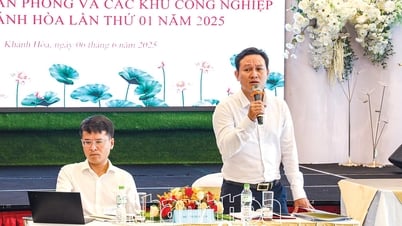



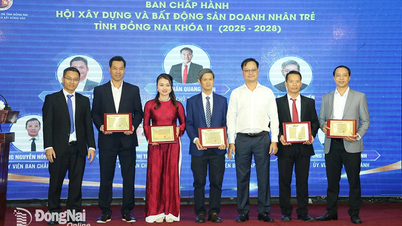



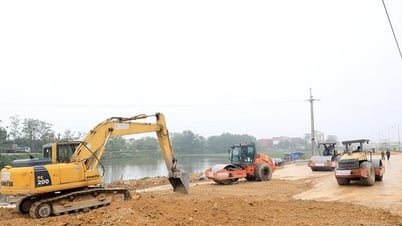
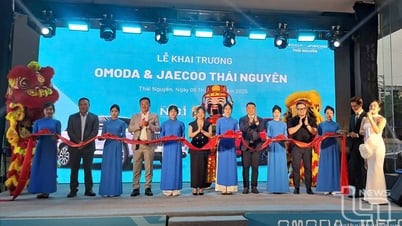






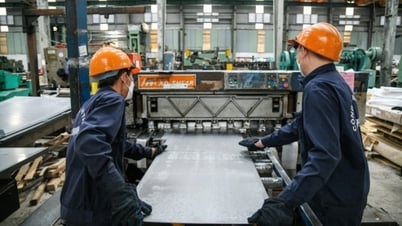
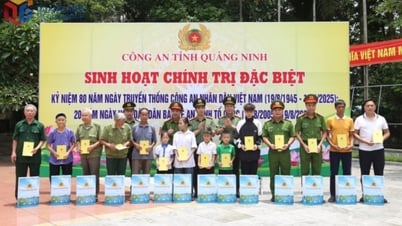

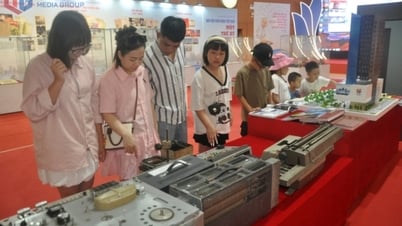
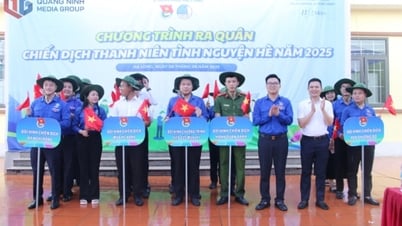


![[Photo] General Secretary To Lam receives Korean Ambassador to Vietnam](https://vphoto.vietnam.vn/thumb/1200x675/vietnam/resource/IMAGE/2025/6/6/a0765b7543784cbcbfe4755b67d43ab4)
![[Photo] President Luong Cuong works with Hung Yen and Thai Binh Provincial Party Committees on implementing Resolution of the 11th Central Conference, 13th tenure](https://vphoto.vietnam.vn/thumb/1200x675/vietnam/resource/IMAGE/2025/6/6/127b735d2761484d81dcee0d7725a25b)




























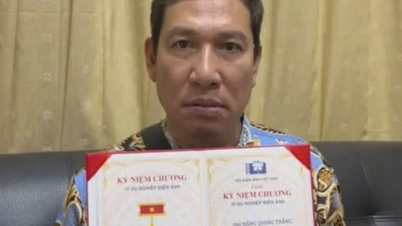


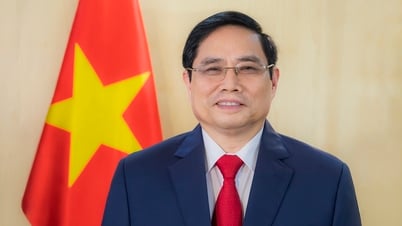









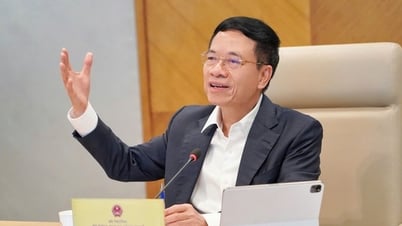

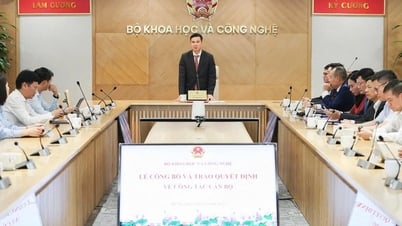


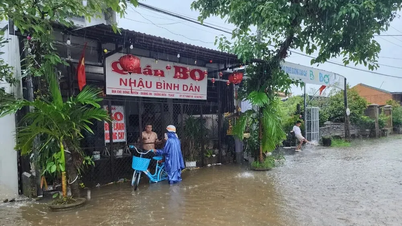

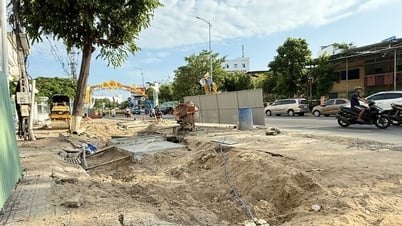
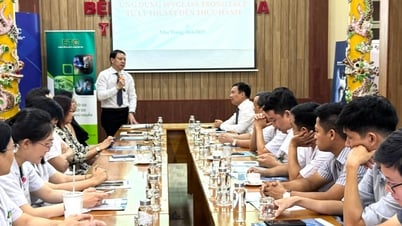


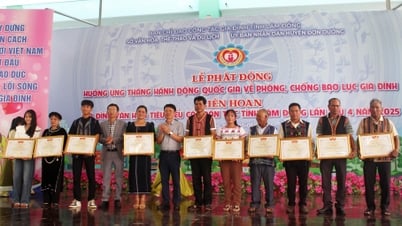





![[OCOP REVIEW] Tu Duyen Syrup - The essence of herbs from the mountains and forests of Nhu Thanh](https://vphoto.vietnam.vn/thumb/402x226/vietnam/resource/IMAGE/2025/6/5/58ca32fce4ec44039e444fbfae7e75ec)







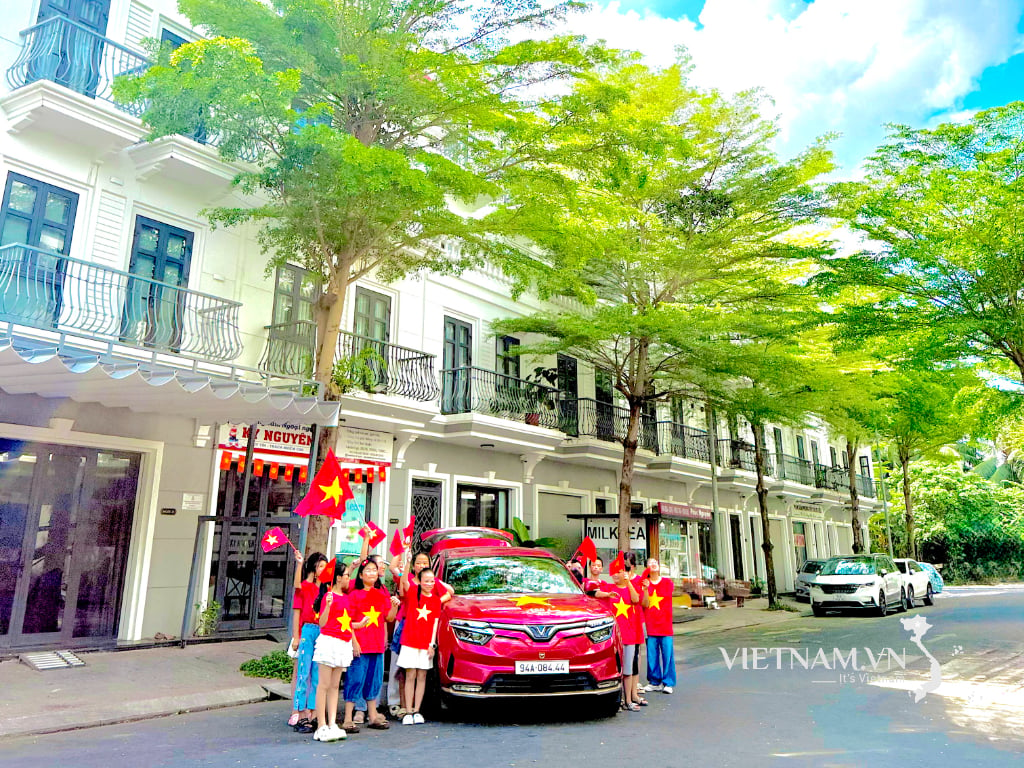


Comment (0)